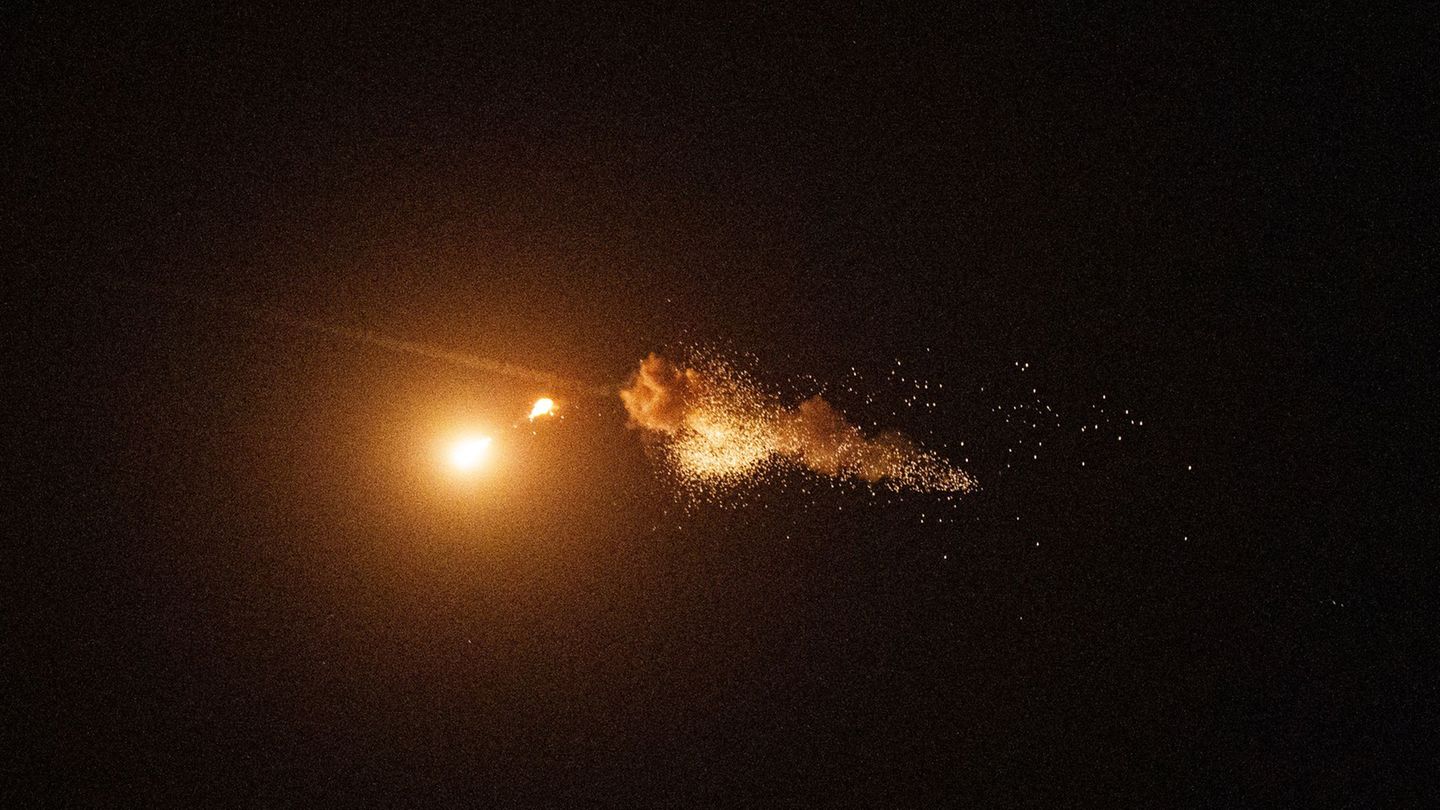Kathryn Bigelow is Hollywood’s wife for hard thrillers and explosives. She is also the first woman to win an Oscar for directing. She got it in 2010 with the war drama “Tödliches Kommando – The Hurt Locker”.
With “Nomadland” Chloé Zhao celebrated a historic Oscar victory last April. The filmmaker from China was the first non-white director to win the directing trophy in over 90 years of Oscar history.
In addition, the road movie about modern nomads in the USA also won the Oscar for best film and for leading actress Frances McDormand. After the award ceremony, Zhao paid tribute behind the scenes to a colleague who had made Hollywood history eleven years earlier.
Your Oscar win was historic
She once met Kathryn Bigelow at a dinner with several people, Zhao told journalists. She is a big fan of hers and would like to see her again now. Bigelow, who will be 70 years old on Saturday (November 27th), was the only Oscar-winning director until then.
With her low-budget film “Deadly Command – The Hurt Locker” she brought male competition to its knees at the 2010 Academy Awards, including her ex-husband, “Avatar” director James Cameron.
“I hope I’m the first of many,” beamed Bigelow at her historic victory. The director lifted two Oscar statues on stage, also as a producer in the king’s category “Best Film”. “The Hurt Locker” was the big Oscar winner with a total of six awards.
It was Bigelow’s eighth feature film that she had made in Jordan, near the Iraqi border, under harsh conditions with sandstorms and windstorms in exhausting heat. It’s about a team of bomb defusers in the Iraq war.
“Zero Dark Thirty” followed in 2012, about the hunt for Al Qaeda boss Osama bin Laden. The film with brutal torture scenes earned the director another Oscar nomination as a producer in the “Best Film” category.
She tackles hot irons
With her next feature film, “Detroit”, Bigelow tackled an explosive topic again, this time in her American homeland. With a star squad around John Boyega and Will Poulter, she watched the riots and police brutality against blacks in Detroit, Michigan, in July 1967. On the 50th anniversary of the fatal rioting, she brought the drama to theaters in 2017.
Bigelow grew up as the only child near San Francisco
A librarian and a manager of a paint factory. She discovered her love for painting at an early age and studied at the
Art Academy in San Francisco and later switched to film at Columbia University in New York.
Briefly married to James Cameron
Born in California, she made her first feature film at the age of 30. She brought Willem Dafoe in front of the camera for the biker drama “Die Lieblosen”. In the cop thriller “Blue Steel” (1990), Jamie Lee Curtis was the heroine as a police officer. In “Point Break – Dangerous Surf” she made Keanu Reeves an undercover agent in the surfing scene. The thriller was produced by her husband at the time, “Titanic” director James Cameron.
The couple’s marriage lasted only two years, but after the divorce, Cameron wrote the script for Bigelow’s 1995 science fiction film “Strange Days”. For the action thriller “K-19 Showdown in the Deep”, Harrison Ford appeared in front of her camera in 2002 as the captain of a Russian nuclear submarine.
Action films and thrillers have long been the figurehead of the more than six feet tall director. But Bigelow is now also addressing other issues. In 2017 the director went to the Congo for a documentary about poaching and the ivory trade. In Garamba National Park she accompanied park rangers who protect elephants from poachers at risk of death. The short film “The Protectors: Walk in the Ranger’s Shoes” celebrated its world premiere at the Tribeca Film Festival in New York.
Most recently she worked as a producer on the documentary series “Year Zero”. The three-part series was realized with eleven filmmakers in countries such as Peru, Chile, China, Italy, India and Iran, as the industry journal “Deadline.com” reported in October. Completely different people were portrayed, including a migrant family, a futurist and a bar owner, against the backdrop of the pandemic.
Source From: Stern
I am a 24-year-old writer and journalist who has been working in the news industry for the past two years. I write primarily about market news, so if you’re looking for insights into what’s going on in the stock market or economic indicators, you’ve come to the right place. I also dabble in writing articles on lifestyle trends and pop culture news.




